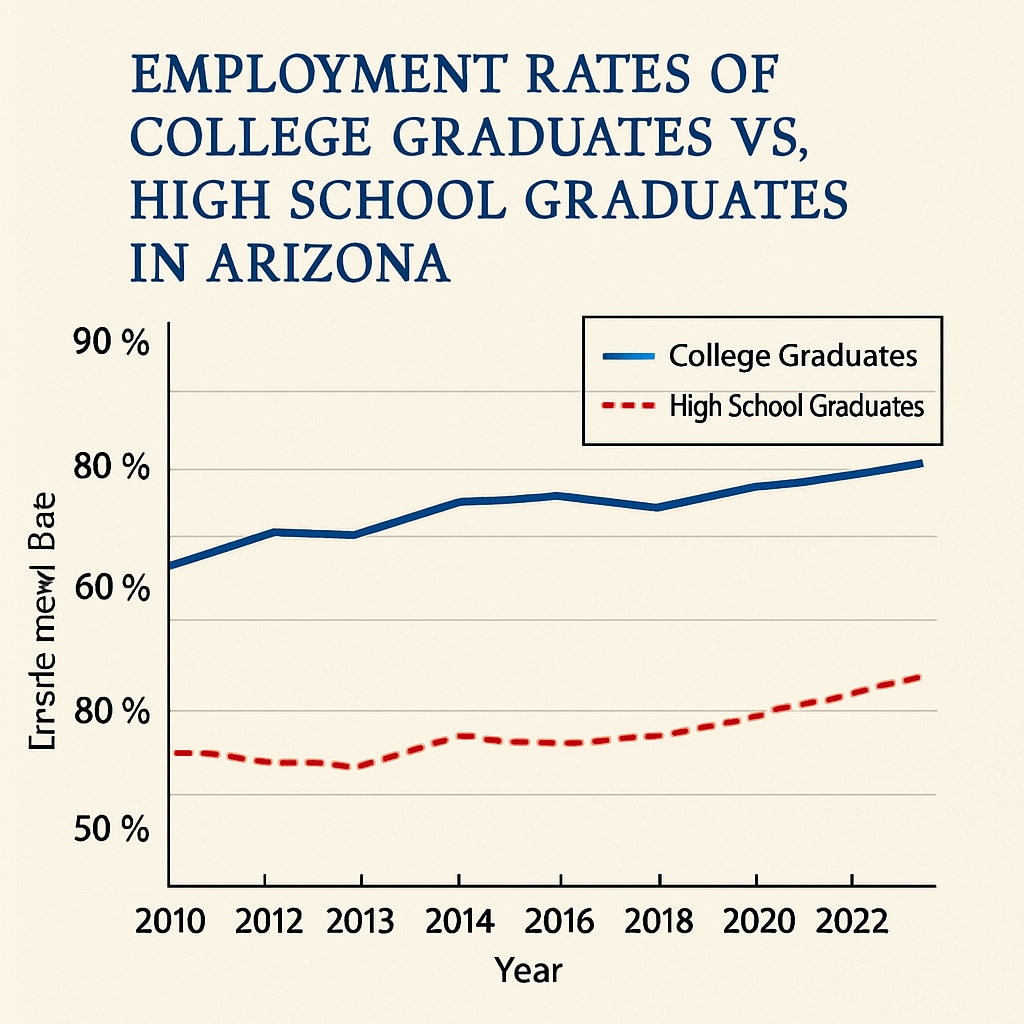In Arizona, employment practices have exposed a curious paradox in education policy: individuals with higher education degrees often find themselves overlooked in favor of those with lesser qualifications, like high school diplomas. This phenomenon challenges conventional beliefs about the value of education and raises questions about the state’s approach to “education policy paradox” as it relates to “employment discrimination” and “certificate-based hiring systems.” By focusing on credentials rather than practical skills, Arizona’s employment policies risk creating systemic barriers for degree holders and undermining the broader purpose of higher education.
How Employment Policies Undervalue Higher Education
Arizona’s preference for certificates or diplomas over advanced degrees stems from a systemic issue rooted in its K-12 education structure. While high school diplomas are celebrated within the workforce, college degrees are often seen as overqualification in certain industries. For example, many entry-level and middle-tier positions in Arizona list high school-level credentials as the standard, discouraging applicants with higher education from applying. As a result, job seekers with college degrees face “employment discrimination,” where their academic achievements are deemed excessive rather than advantageous.

Implications for the Education System and Job Market
This preference for lower qualifications creates a ripple effect, impacting both the education system and the job market. Firstly, the perceived lack of value in higher education discourages Arizona students from pursuing college degrees. Why invest in four years of higher education when employers prioritize simpler qualifications? Secondly, this trend perpetuates wage stagnation and limits career growth, as individuals with higher degrees often find their qualifications underutilized, leading to job dissatisfaction and brain drain.
The certificate-focused hiring practices also fail to account for real-world skills, such as critical thinking, leadership, and problem-solving, which are often cultivated during a college education. By reducing hiring standards to a checklist of credentials, Arizona employers overlook these intangible yet crucial competencies.

Moving Toward Inclusive Employment Practices
To address these challenges, Arizona’s policymakers and employers must rethink how education is valued in hiring processes. Here are some actionable recommendations:
- Skills-Based Hiring: Shift focus from credentials to skills. Employers can implement assessments or practical tests to evaluate real-world capabilities.
- Collaborative Education Initiatives: Bridge the gap between K-12 and higher education through partnerships with colleges, ensuring students understand the value of advanced degrees.
- Transparent Job Descriptions: Clearly define the skills and qualifications required for roles, avoiding unnecessary barriers for degree holders.
- Professional Development Programs: Offer ongoing training opportunities for employees regardless of their educational background.
In addition, the state could invest in public awareness campaigns to shift perceptions about higher education, emphasizing its role in fostering innovation and economic growth.
Conclusion: Balancing Credentials and Skills
Arizona’s employment policies reveal a critical flaw in the way education achievements are assessed and valued. By undervaluing college degrees, the state risks alienating a significant portion of its educated workforce, perpetuating systemic issues within its job market. A balanced approach that prioritizes practical skills alongside educational credentials will enable Arizona to create a more inclusive and dynamic employment system. This shift is not just necessary for job seekers but also for the long-term economic and social prosperity of the state.
Readability guidance: Short paragraphs and actionable lists ensure clarity and engagement. The use of transitional words like “however,” “therefore,” and “for example” supports logical flow throughout the article.


